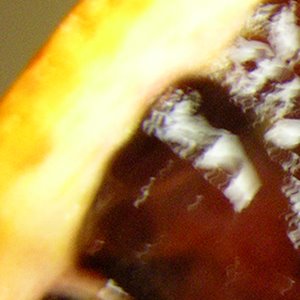If I have enough space—I prefer the sprawling space of the countryside, but even a little bit of mental space from distractions will do—I learn things about poetry, and in particular the sounds of poetry. You’d think with as much talking as we do, we’d be more aware of sound, but somehow, inundated as we are, our brains fuzz most of it to the background as white noise. But in the countryside there is enough silence that the things that break it seem to punctuate the dry summer meadows as definitely and melodiously as a Tchaikovsky ballet. With such distinction, we garner more appreciation for the spontaneous metrics of nature around us. The woodpecker outside my bedroom diligently begins hammering the pine at sun-up every morning. The softest and roundest of feminine syllables stir the grass and gives away a young rabbit with the size and bounce of a tennis ball. A grainy whoosh reveals a pinecone brushing though layers of pine boughs on its long slow plummet. Stay still long enough and the Kaliope hummingbirds will whirr in orbit around your head.
Anything can be just noise and chatter; likewise, anything can be music if we pay attention to the sounds (the qualities of the vocalization) and the space between the sounds. Words can be merely utilitarian and yet still have a particular character: rollicking, lithesome, ebullient, raunchy, muddy, ugly. Jibberish can just as easily articulate feeling; Lewis Carroll’s poem Jabberwocky is a classic example of nonsense language that so convincingly voices sensible feeling.
JABBERWOCKY
By Lewis Carroll
`Twas brillig, and the slithy toves
Did gyre and gimble in the wabe:
All mimsy were the borogoves,
And the mome raths outgrabe.
"Beware the Jabberwock, my son!
The jaws that bite, the claws that catch!
Beware the Jubjub bird, and shun
The frumious Bandersnatch!"
He took his vorpal sword in hand:
Long time the manxome foe he sought --
So rested he by the Tumtum tree,
And stood awhile in thought.
And, as in uffish thought he stood,
The Jabberwock, with eyes of flame,
Came whiffling through the tulgey wood,
And burbled as it came!
One, two! One, two! And through and through
The vorpal blade went snicker-snack!
He left it dead, and with its head
He went galumphing back.
"And, has thou slain the Jabberwock?
Come to my arms, my beamish boy!
O frabjous day! Callooh! Callay!'
He chortled in his joy.
`Twas brillig, and the slithy toves
Did gyre and gimble in the wabe;
All mimsy were the borogoves,
And the mome raths outgrabe.
How we voice out chosen words says as much as the words we choose. Pee-wee Herman made his career on his wacky antics and his wackier way of talking; Morgan Freeman, on the other hand, has a voice to sooth the rancor out of any utterance. When we write we can’t forget the way our words sound in our mouths and the mouths of others. Just listen to a recording of W.B. Yeats reading The Lake Isle of Innisfree and you’ll feel the powerful vibratory rhythm of the poem. It’s half as powerful read silently on the page. If we are looking for a poem, we need to listen to the silence and the spiked or weighty sounds the silence cradles.
H.K.H
Friday, August 11, 2006
Subscribe to:
Post Comments (Atom)




No comments:
Post a Comment